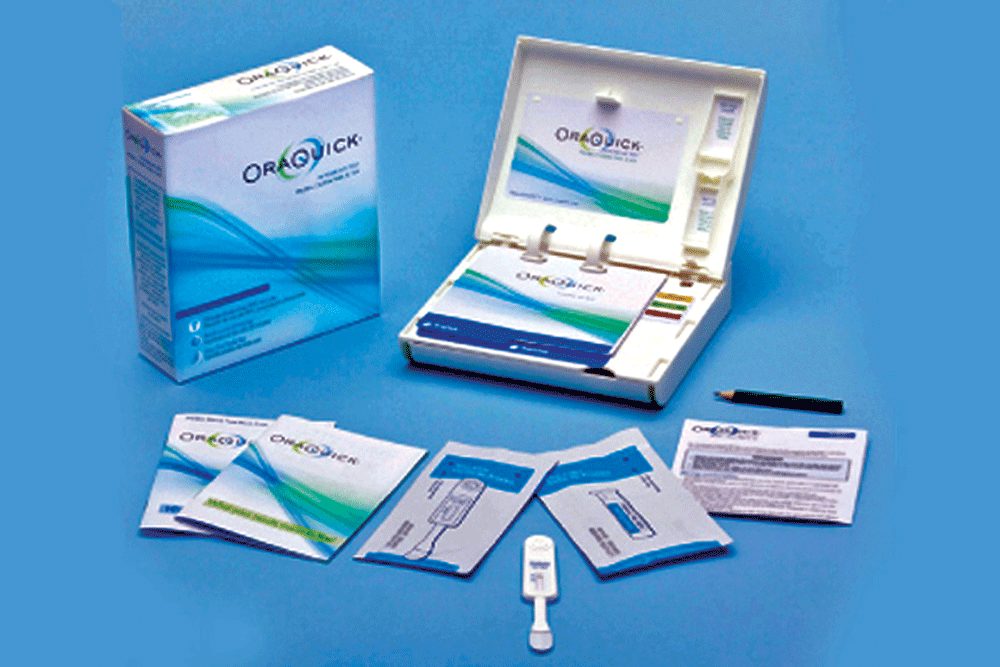An over-the-counter rapid H.I.V. test was approved by the F.D.A. in May, making at-home H.I.V. screening possible for the first time.
OraQuick, which is administered by a mouth swab and provides results in 20 minutes according to its website, will be available online and in stores in October. Besides providing a greater sense of privacy and comfort to users, the test may also offer more opportunities for low-income or homeless individuals to screen themselves. Having a simpler way to do a home check may help get those who test H.I.V. positive in contact with community health care centers earlier to receive the treatment they need.
“The approval of this test is a good move towards linking those infected with H.I.V. into health care and treatment,” said Dr. Robert Gallo, who was part of a research team responsible for identifying the H.I.V. virus in 1984.
Gallo, who is the founder and director of the Institute of Human Virology at the University of Maryland School of Medicine, said the OraQuick test is different from H.I.V. testing at clinics because “it is more convenient, involves greater privacy, and people can perhaps test more frequently.”
According to a study in Healing Hands, a publication of the Health Care for the Homeless Clinicians’ Network, homeless people are at a higher risk for H.I.V.

“Prevalence of H.I.V. is generally estimated to be at least three times higher among people who are homeless than in the general population,” the study asserted. In addition, “One-third to one-half of individuals living with A.I.D.S. [Acquired Immunodefinciency Syndrome, often contracted after someone is infected with H.I.V.] are estimated to be homeless or at risk of homelessness (Conanan et al. 2003).”
But Tracy Swan, Hepatitis/H.I.V. project director at the Treatment Action Group, said she is skeptical about whether the OraQuick test will help solve the problem of high H.I.V. rates in the homeless community.
“I don’t think the test will have a huge impact on stopping H.I.V. transmission in the homeless community unless people who test positive have immediate entry into medical care [and] are treated with respect and kindness,” Swan said, adding they also should “receive education about, and access to, H.I.V. treatment in the context of complex medical and mental health care.”
Whatever the pros and cons of the new OraQuick test, one thing is certain: it gives all those eager to test for H.I.V., including low-income or homeless individuals, a secure, private and potentially cheaper way to do so.




